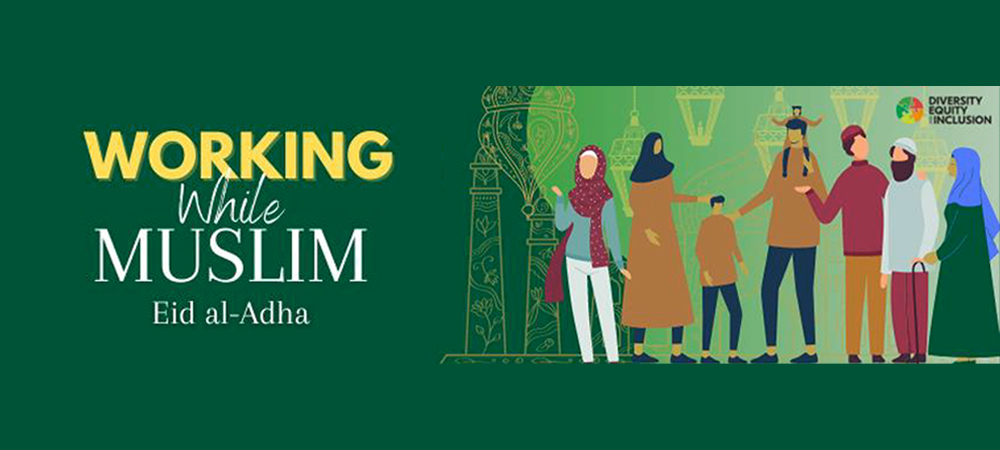Eid al-Adha (July 19 – 23, 2021) – also known as “The Festival of Sacrifice” is one of the most important festivals for Muslims worldwide and takes place on the tenth day of the last month of the lunar Muslim calendar. It follows two months after Eid al-Fitr, which marks the end of Ramadan, the month of fasting.
This year, families across Canada will gather in small groups or meet virtually to share meals, attend small prayers at mosques and give back through charitable donations.
To commemorate this important time, the Sobeys DE&I team connected with teammates to launch an ongoing learning series titled “Working While Muslim”. Thank you to our teammates below who shared the importance of observing Eid al-Adha, as well as their unique experiences as practicing Muslims.

IDRIS AJANI
Project Manager, EPMO Delivery – Mississauga, Ontario
What does being Muslim in Ontario mean to you?
Being a Muslim in Canada means several things to me. Firstly, the freedom to practice my faith without fear of crossing the laws in a multicultural environment. Islam, being a minority faith in [Canada], also means that I have to be more deliberate in seeking access to Islamic facilities and resources, as well as to incorporate Islamic practices to my daily life. Cases of violence against Muslims, perhaps isolated and few, raises concerns for me as I do have a visibly Islamic spouse who wears the hijab.
NABIHA MURAD AGHA
Pharmacist, Safeway Langley Fraser Crossing – Langley, British Columbia
What is the *one* thing you want your teammates to know about practicing one’s faith at work?
Prayers! Praying five times a day is a pillar of Islam. The timing of each prayer changes depending on the length of day and time of year. The change is very slow from day to day. Some prayers are set during the day and others in the evening or early morning.
In the winter, daytime prayers are crammed together because the sun sets a lot earlier. In summer, they’re more spaced apart. During a morning shift in the winter, a Muslim will need to perform two to three prayers. Trying to time them around break time is tricky. At my location, staff are very understanding that my break time may not happen always at the set schedule. I may take a 25-minute break and leave five minutes for later for the next prayer.
Prayers also require privacy. Although not every pharmacy will have a private area, even a corner where one can take two minutes to perform their prayers without interruptions is all that’s required. My colleagues here are very understanding!
What is the *one* stereotype about Muslim Canadians you want teammates to know that is simply untrue?
“Muslim Canadian women are oppressed and uneducated.”

RASHIDA KHAN
Frontend/Floral Assistant Manager, Safeway Lindenridge – Winnipeg, Manitoba
What does being Muslim in Manitoba mean to you?
I emigrated from Pakistan in the 1970’s with my parents and siblings. We have been happy and proud to call Canada our home for over 40 years. However, times have changed. Now, more than ever, we are misunderstood because of what we believe in and even what we look like. The media and entertainment industry have painted Muslims with one brush and that being a negative one. We have seen the effects of this on our community, such as the most recent events in London, Ontario. I hope that we can continue the conversation of how we can ensure this doesn’t happen again and give others the opportunity to learn about the Muslims in Canada. There really is so much to learn about us as people as we all come from different backgrounds and speak many languages. We are always happy to answer any questions about our faith and help clarify misconceptions.
How are you and your family observing Eid al-Adha this year?
In Manitoba, we are able to gather in small outdoor settings. We will be sacrificing lamb and sending money to our families in Pakistan. This year, we will be celebrating with family in our backyard, cooking and offering presents to the children. I have two grandchildren and they are already looking forward to their Eid gifts!

